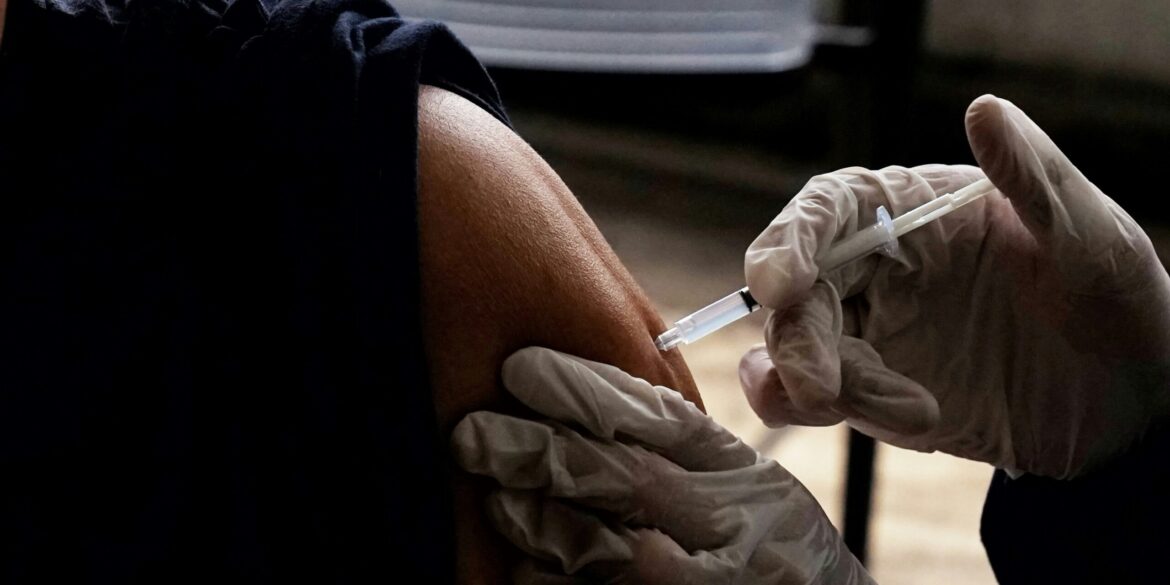Healthcare professionals and public health advocates are expressing serious concerns over Robert F. Kennedy Jr.’s recent decision to remove COVID-19 booster shots from the recommended immunization schedule, particularly due to the heightened risks that COVID-19 poses to vulnerable populations such as pregnant individuals. This controversial move bypassed the usual protocol that involves input from expert advisory panels from the Centers for Disease Control and Prevention (CDC) and the U.S. Food and Drug Administration (FDA), drawing criticism from numerous maternal health organizations and public health experts.
Kennedy’s decision to exclude COVID-19 boosters from the vaccination schedule has raised alarms across the medical community, with concerns focused on its potential to undermine trust in vaccines, particularly among pregnant individuals. Despite substantial evidence supporting the safety and effectiveness of COVID-19 vaccinations during pregnancy, including booster shots, Kennedy’s unilateral decision contradicts the guidance from leading maternal health organizations, such as the Society for Maternal-Fetal Medicine (SMFM) and the American College of Obstetricians and Gynecologists (ACOG), which have consistently emphasized the importance of COVID-19 vaccination for the safety of both mothers and their babies.
Dr. Amanda Williams, a maternal health expert at March of Dimes, pointed out the tragic impact of the COVID-19 pandemic on pregnant individuals, noting that many of those who experienced severe illness or death were not vaccinated or did not receive their boosters. Williams stressed the increased risks that COVID-19 presents to pregnant people, including a higher likelihood of severe outcomes like preterm labor, stillbirth, and maternal mortality. This concern is particularly urgent as pregnant individuals represent one of the most vulnerable groups when it comes to COVID-19, as evidenced by studies conducted throughout the pandemic.
In line with these concerns, both SMFM and ACOG have repeatedly reaffirmed the safety of COVID-19 vaccines and boosters during pregnancy, emphasizing that the benefits far outweigh the risks. The CDC, which has continuously monitored vaccine safety, maintains that there is no evidence to suggest any significant risks to pregnant individuals from receiving the vaccine or booster doses. Moreover, respected sources like the New England Journal of Medicine have published peer-reviewed data confirming that the vaccines are not only safe but also critical for protecting pregnant people and their babies from severe COVID-19 infection.
However, despite this overwhelming scientific consensus, Kennedy’s actions have sparked a broader debate about his influence on public health decisions. His decision to remove boosters from the immunization schedule without consulting expert advisory panels has led many critics to argue that his actions were politically motivated rather than based on scientific evidence. His history of vocal opposition to vaccines has long drawn attention from both supporters and detractors, and this latest decision has only fueled the growing anti-vaccine sentiment among some of his followers.
Critics of Kennedy’s move argue that his decision could have dangerous consequences, particularly as the public health community works to maintain trust in vaccinations, especially in the face of increasing misinformation and vaccine hesitancy. Public Citizen, a prominent consumer rights group, condemned Kennedy’s actions as not only unqualified but also as potentially life-threatening for pregnant individuals and young children. Experts have pointed out that Kennedy’s decision to bypass established scientific protocols undermines public health norms and could result in serious setbacks in vaccination efforts, particularly for at-risk groups.
Vaccination rates among pregnant people and young children have remained relatively low throughout the pandemic, despite widespread recommendations from healthcare organizations to protect these populations from the severe consequences of COVID-19. This decline in vaccination uptake has been attributed, in part, to the erosion of trust in public health messaging and the rise of misinformation. Kennedy’s recent actions may further contribute to this erosion, as they provide an opportunity for vaccine skeptics to amplify their rhetoric and discourage essential health practices.
The controversy surrounding Kennedy’s decision has highlighted the increasing politicization of public health measures, particularly as the country continues to grapple with the long-term impacts of the pandemic. While the scientific community has reached a near-unanimous consensus on the importance of COVID-19 vaccinations and boosters, figures like Kennedy continue to challenge this consensus, despite clear evidence supporting the safety and effectiveness of the vaccines.
The public health community is urging continued education and outreach to combat the growing vaccine misinformation, particularly in vulnerable populations. In the case of pregnant individuals, whose risk from COVID-19 is higher than the general population, experts continue to stress that vaccinations, including booster shots, are not only safe but critical for protecting both maternal and infant health.

